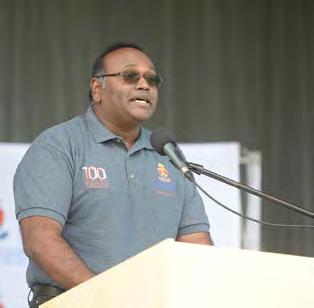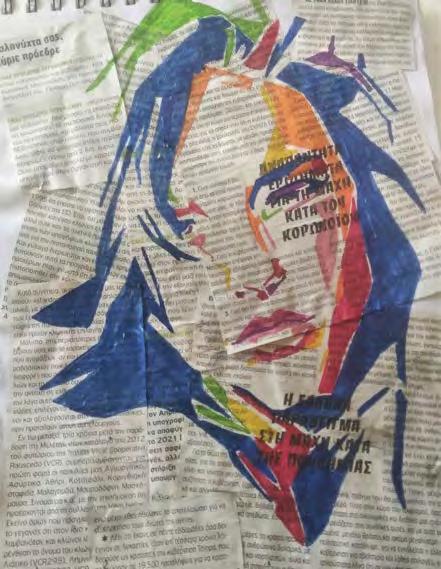86
Teaching and Learning Review 2020
Taking a ‘Mock’ Model United Nations Debate Online A central component of the second-year undergraduate International Relations module (IPL 220), which focuses on foreign policy analysis and diplomacy, has been the annual ‘mock’ Model United Nations (MUN) debate. This constitutes an important group assessment for the module, and it traditionally takes place in the fourth quarter of the academic year. The MUN debate is part of the fabric of the department, and it is highly anticipated by students and teaching staff alike, since it gives students the opportunity to role-play actual countries at the level of the UN General Assembly, debating their country positions in respect of an important international issue. The MUN brings to bear all of the conceptual and theoretical dimensions to which students have been exposed in the module and allows them to apply these ‘in practice’ while also learning about the formal rules and procedures that govern UN General Assembly deliberations. Traditionally, the MUN debate takes place over a full day on campus. There is much fanfare: students go as far as dressing up to reflect their country’s culture, country flags are flown, delegates get to interact with each other, members of the diplomatic community are invited as guests, and real-life diplomats are appointed to adjudicate the debate. Prizes are awarded for best speaker and best country position paper. A group mark per country is then aggregated as part of the assessment for the IPL 220 module.
Remote emergency online teaching and learning initially prompted discussions about cancelling the MUN for 2020. Dr Anthony Bizos, lecturer for the module, initially considered it impossible to translate the logistics surrounding the MUN into an online offering. However, the digital ability, commitment and confidence of Ms Saphia Essop (Dr Bizos’ assistant lecturer for this part of the module) meant that they were able to achieve the following:
space. The third week allowed countries to present on the privatisation of space, followed by resolutions and concluding remarks. Although this was all virtual, it in no way detracted from the experience. The UN’s online platform allowed for live and real-time simulation in respect of opening statements, time allocation per speaker and countdown, motions for caucus, voting and voting recordal, together with all other rules of procedure.
2. At no financial expense to the department, Ms Essop was able to source a free online platform for virtual debates from the UN itself, which was compatible with UP’s Blackboard Collaborate online platform and capable of accommodating simultaneous sessions for over 250 students.
4. In the build-up to each of these virtual sessions, Blackboard Collaborate was set up to allow groups to meet privately to discuss their progress, as well as their negotiation tactics and strategies, with teaching staff and dedicated third-year international relations students who volunteered to serve as mentors. In preparation for each virtual MUN session, groups were required to submit written work via Turnitin. The work reflected their understanding of their country’s real position in respect of the issue, based on a comprehensive engagement with primary and secondary sources.
3. In 2020, rather than having one single all-day session, the MUN was split over three virtual weeks (on Blackboard Collaborate), covering one topic of debate and deliberation. The first week was an introductory session, where countries presented their overall position on the theme of ‘International cooperation in the peaceful uses of outer space’. The second week covered the militarisation of
In summary, they were able to show that a virtual MUN is both possible and sustainable— and that it does not compromise the lived experience that students have with this opportunity and type of assessment. In many ways, the decision to stagger the virtual sessions over three weeks meant that students were more consistently learning through reading, negotiating and doing.
1. They successfully introduced the first virtual MUN conducted by the Department of Political Sciences under the theme, ‘International cooperation in the peaceful uses of outer space’.












































